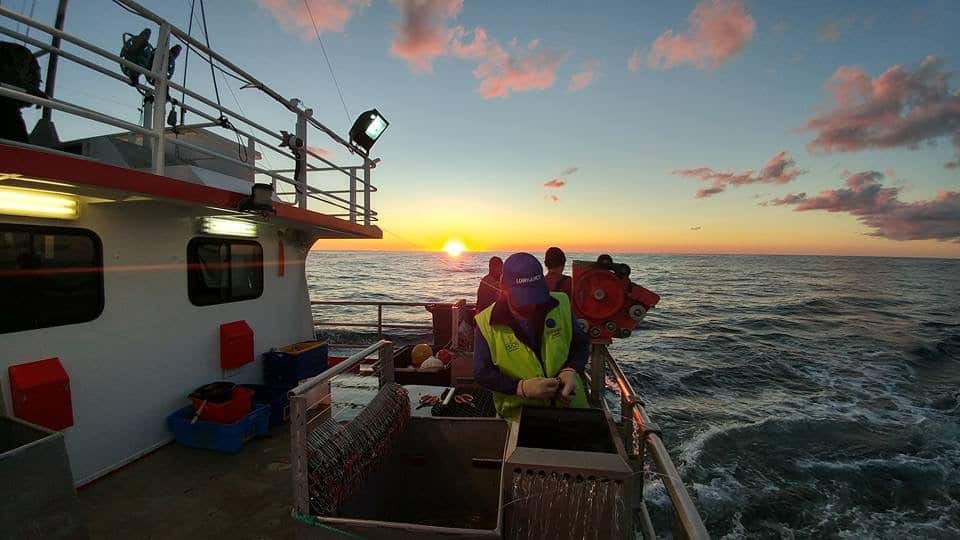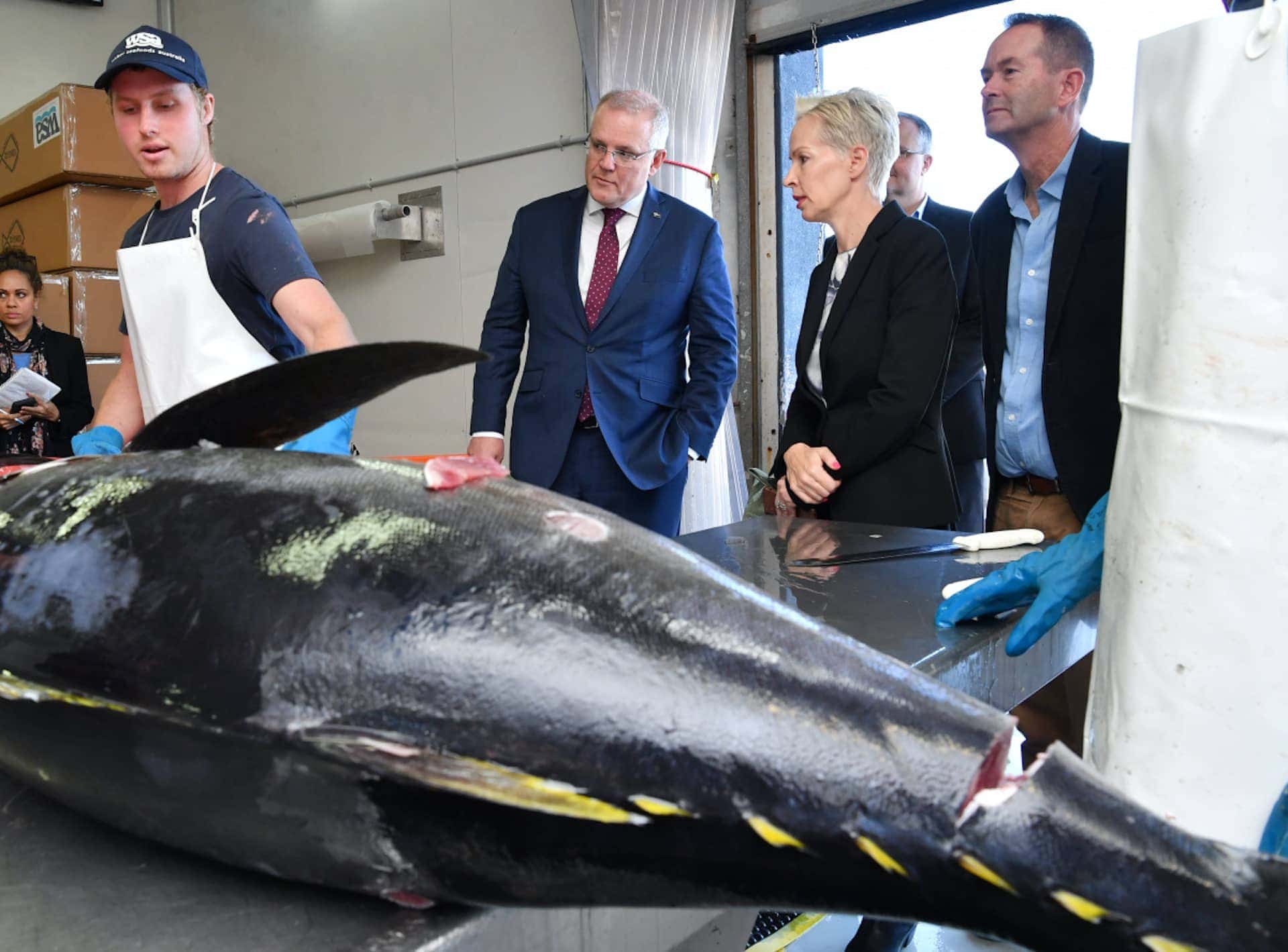Tuna Australia calls for primary sector to unite to address worker shortages
Nearly a year on from when COVID-19 hit Australia’s shores and our international borders slammed shut, the tuna industry and other food-producing industries continue to suffer from serious worker shortages.
“We urgently need to find a solution to bring skilled workers into the country to keep our primary production industries viable,” said Tuna Australia CEO David Ellis.
The tuna industry, valued at AUD $50 million, relies heavily on overseas workers to fill non-seasonal, skilled jobs including deckhands, engineers, and skippers.
The closure of Australia’s international border, which has been in place since March 2020, has significantly reduced access to overseas workers.

On board the Kaybeanna.
“The border closures are really hurting tuna producers,” said Ellis.
“Currently, there are around 25 vacancies on boats run by Tuna Australia members. Vacancies on boats will continue to increase as existing visas of overseas workers expire and skilled replacement workers can’t be brought into Australia.
“Working on a tuna boat requires years of experience, is very hard, and involves days or weeks spent at sea without many comforts of home such as the internet—many Australians don’t have the right skills or aren’t interested in that kind of a job,” he said.
A wide-spread problem
Beyond the tuna industry, the shortage of overseas workers is impacting food-producing industries right across Australia.
In the dairy industry, for instance, challenges in securing workers have contributed to losses of up to AUD $364 million per year.
For the farm industry, recent reports indicate a shortfall of approximately 26,000 workers due to international and border closures.
While the Federal Government’s response to the issue has been slow, there has been some positive progress.
In October 2020, 160 seasonal workers from Vanuatu were brought to the Northern Territory to pick mangoes during the harvest season as part of a trial program.
“We applaud the government for supporting this trial program,” said Ellis. “But it has only brought in less than 200 people when the primary sector needs tens of thousands of workers.
We demand that the government do much more to bring in seasonal and non-seasonal workers to ensure the viability of our food-producing industries.”
Finding a shared solution
Tuna Australia is now calling on all primary industries needing labour to unite to find a shared solution.
“If we join together and work closely with federal and state governments, we can hope to turn the dial on this issue,” said Ellis.
“It’s critical to find a solution that brings in people who want to work on boats, farms, or in forests to come to Australia as and when they are needed.”

Scott Morrison at Walker Seafoods in Mooloolaba on Tuesday 28 July 2020. Photo by AAP
One viable solution would be the creation of a specialised visa for the primary sector, says Ellis.
It is a concept that has been raised in different forms by Tuna Australia member Walker Seafoods in a July 2020 meeting with Prime Minister Scott Morrison and by the National Farmers Federation.
“Developing a dedicated visa program for the primary sector would ensure that fishers and farmers can get a consistent stream of workers for regional and remote areas,” said Ellis.
“Getting skilled overseas workers to do the jobs that Australians do not want will create downstream jobs that Australians are prepared to do!”
“This program would provide fishers and farmers with certainty, enabling the primary sector to prosper and grow, and weather the challenges caused by COVID-19 restrictions,” said Ellis.